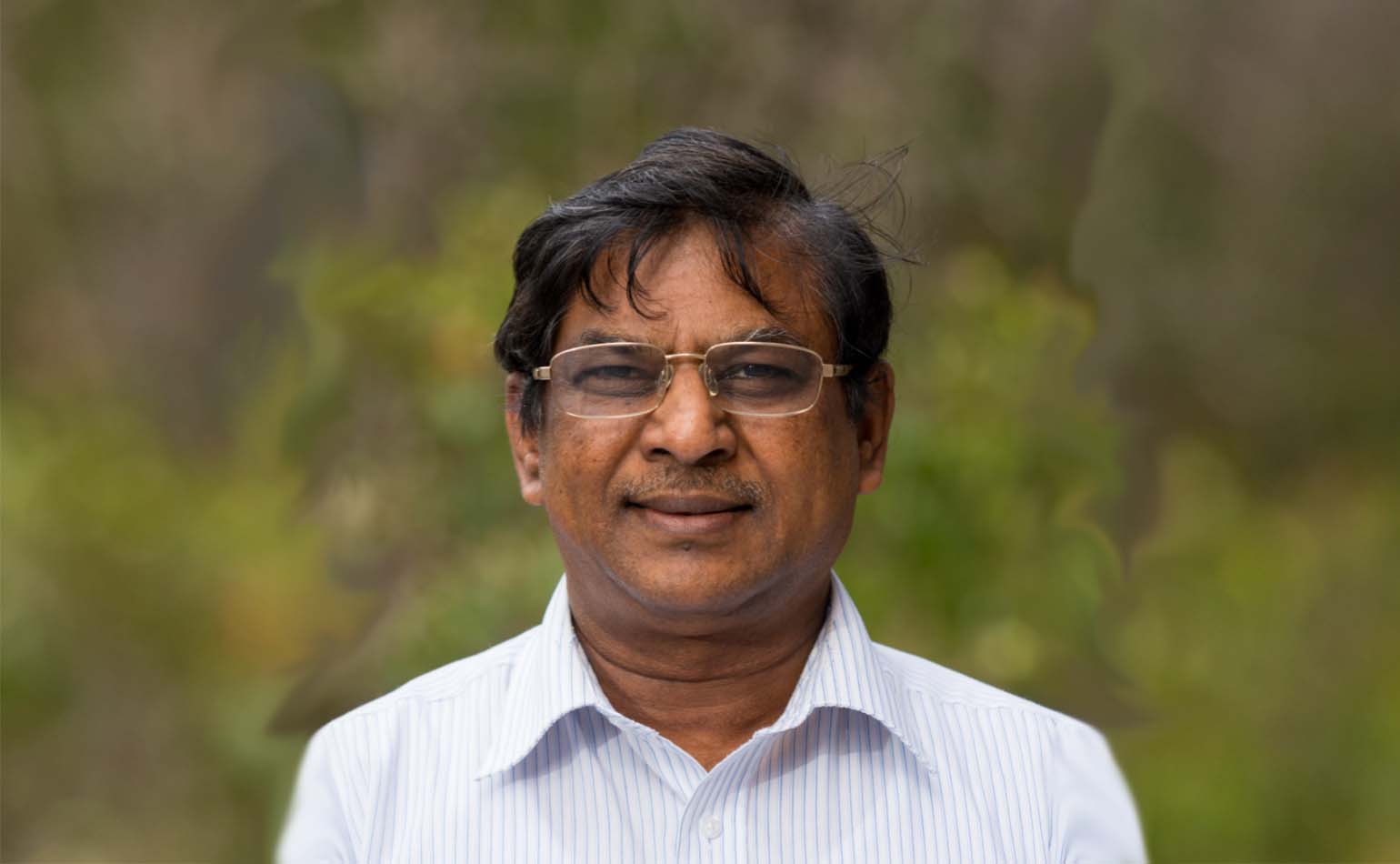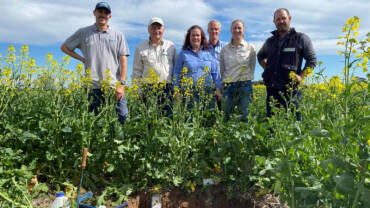Profile: Professor Megh Mallavarapu
| Posted Oct 07,2021Professor Megh Mallavarapu’s passion lies with the incredible microbiology of the soil. He sees enormous potential in these tiny organisms that punch way above their weight.
“Soil microbiology has been my specialty. Microbes are the key; they have multiple functions. They can increase productivity and they can clean up contaminants,” he enthuses.
“I am very interested in the role soil algae plays in soil health. Often, microbiologists only think of fungi and bacteria, but algae are present in soils too. It is the green layer you can sometimes see in the soil after rain. They directly fix carbon dioxide from atmosphere and add organic carbon to the soil. Some cyanobacteria also fix nitrogen, and they promote beneficial bacteria growth and are important for soil fertility as well.”
Megh’s love of soil runs deep, which makes him well placed for his new role as a Program Leader for the Soil CRC. Growing up in a small village in India, agriculture was all around him. His life-long interest in soil was sparked by regular visits to his uncle’s farm.
After completing his undergraduate degree in chemistry and biology and a masters in environmental biology, he wanted to learn more about microbes. He undertook his PhD in soil microbiology and environmental pollution. These were all completed at Nagarjuna University, situated in a cotton growing region of India.
At the time he was completing his PhD, white fly was prevalent in cotton crops and farmers were using large doses of pesticides to control it.
“My PhD examined how pesticide use impacted soil health,” Megh explains.
He was interested to find out the impact of pesticides on soil health.
“Modern agriculture relies on the heavy use of pesticides and fertilisers. Soil health is affected, and microbial diversity is lost. Soil microbes are vital to soil health and fertility,” Megh says.
After completing his PhD, Megh spent time working in the UK at the University of Liverpool, the National Research Centre for Biotechnology (GBF) in Germany and at the University of Otago in New Zealand, before settling in Australia and becoming a citizen in 2000.
He worked at the University of Adelaide, the University of South Australia and the CSIRO looking at the effects of pesticides and pollutants on soil health and bioremediation. In 2015 he joined the University of Newcastle as Professor of Environmental Biotechnology at the Global Centre for Environmental Remediation.
For the past 14 years, Megh has been a Program Leader with CRC CARE (Contamination Assessment and Remediation of the Environment). He has brought his considerable expertise in soil algae and soil microbes to this role, focussing on remediation technologies for contaminated land.
“It has been a great experience to be a Program leader at CRC CARE. We mostly deal with contamination in land and water to protect human and environmental health. We developed and field implemented cost-effective and environmentally sustainable remediation technologies for several common and emerging contaminants. The traditional method was to dig and dump, but we have used microbes to remediate soil and groundwater, it is a green technology,” he says.
Megh has been appointed as the Leader of the Soil CRC’s Program 3 – New products for soil fertility and function, taking over from Professor Nanthi Bolan who moved from the University of Newcastle to take a position at the University of Western Australia.
“As Program Leader I am excited to work with the other Soil CRC Program Leaders working towards healthy soils for agricultural productivity. The Soil CRC is almost halfway through, and it is making very good inroads. Like all CRCs, it is end user driven. At the heart of the Soil CRC is farmer groups. We must consider what the end users want, not just what we are interested in researching.”





